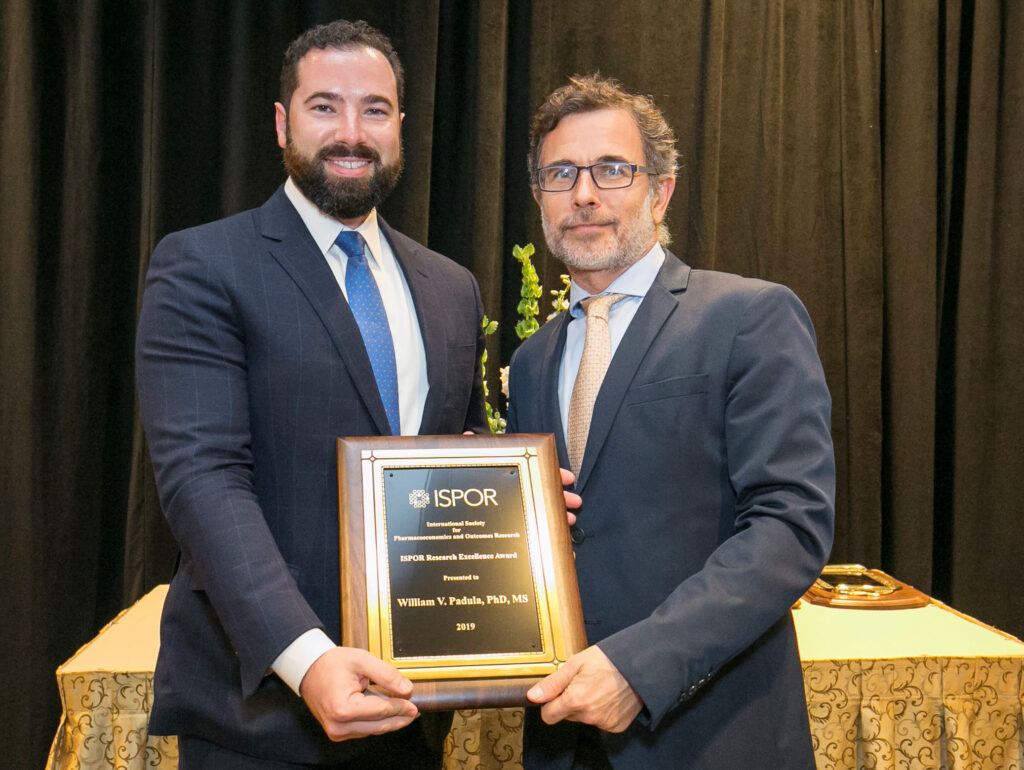William Padula was honored at the Annual International Society of Pharmacoeconomics and Outcomes Research (ISPOR) Awards Program in New Orleans on Sunday with the 2019 Award for Excellence in Application of Health Economics and Outcomes Research for his paper evaluating the value of hospital resources for effective pressure injury prevention.
Padula is an assistant professor of health economics at the USC School of Pharmacy and the Schaeffer Center for Health Policy & Economics.
The award Padula received is given for research that is methodologically innovative and expected to have or has had a high impact on health policy. In the paper, which was published in the British Medical Journal (BMJ) Quality & Safety in 2018, Padula and his colleagues analyzed the cost-utility of performing daily follow-up risk assessment for pressure-injury prevention in all patients and in select high-risk cohorts. Based on overall utility gains, they found the most cost-effective strategy was prevention-for-all patients, regardless of initial risk assessment.
Hospital-acquired pressure injuries are localized skin sores that affect over 2.5 million individuals, resulting in 60,000 deaths in the U.S. alone. All told, these injuries cost the U.S. healthcare system $25 billion per year. Through implementing international best practice guidelines, these injuries and deaths could be avoided. But, these best practices are also time consuming, complex, and come with significant startup costs for the hospital.
“This manuscript effectively combines a practical application of cost-effectiveness analysis to address the high cost of hospital labor to prevent a devastating condition with innovative methodology that has not been previously explored through economic evaluation,” said Dana Goldman. “I am thrilled to see Bill recognized by ISPOR for this important work that is sure to have an impact—both in policy and research methodology.”
Since the study was released, U.S. policymakers have taken note. The U.S. Senate added pressure-injury prevention as a priority research area and the U.S. House of Representatives has approved language for a bill to recognize pressure injuries as a national emergency in the U.S. healthcare system.
“Pressure injuries are preventable hospital-acquired conditions, and investments made towards pressure-injury prevention are akin to low hanging fruit in the battle against rising healthcare costs,” Padula and colleagues wrote. “In a healthcare environment that penalizes hospitals for preventable hospital acquired diseases, providing pressure-ulcer prevention represents a very cost-effective strategy for reducing [hospital-acquired pressure injuries] and improving patient outcomes.”
ISPOR is the International Society of Pharmacoeconomics and Outcomes Research. Founded in 1995, it has 9,500 individual and student members from 114 countries.
Peter J. Pronovost, Mary Beth F. Makic, Heidi L. Wald, Dane Moran, Manish K. Mishra, and David O. Meltzer co-authored the study.
